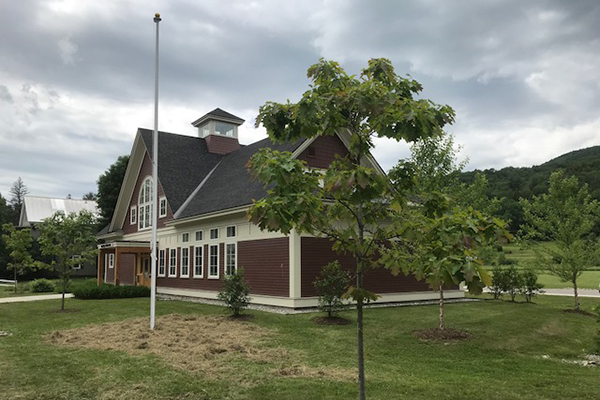The Waitsfield Select Board will move forward with plans to present voters with a Town Meeting vote on a charter change that enables the town to enact (by a separate vote) a local option tax (LOT).
The board, at its September 23 meeting, voted to have town administrator Trevor Lashua create a timeline detailing public outreach and other items needed to bring the matter to voters at Town Meeting.
Lashua affirmed that the town will need to change its charter if it wants to bring a local option tax to voters. Waitsfield, Warren and Fayston have negotiated a memorandum of understanding and bylaws to ask voters in all three towns to adopt a 1 percent LOT on rooms, meals, alcohol and retail sales and use the funds collected to invest in housing, transportation, community projects, recreation and marketing.
Because Warren and Fayston were considered gold towns after Act 60/66 (Vermont’s education funding formula), they are already allowed to adopt an LOT. Waitsfield was not a gold town at that time so the charter must be changed.
While the select boards of Warren and Fayston are unanimously in favor of a tri-town LOT, Waitsfield’s board has been split 3-2 with board members Jon Jamieson, Kellee Mazer and Darryl Forrest in favor and Paul Hartshorn, the board chair, and Sal Spinosa against it. Hartshorn has advocated for a Waitsfield-only LOT to be used for roads and other town projects.
A tri-town LOT would raise about $1 million and the towns would net $700,000 less state administrative fees for filing returns. A Waitsfield-only LOT would net $398,000 less administrative fees, according to Lashua.
At this week’s meeting, Lashua reported that the town attorney, Joe Fletcher, had affirmed that the town must change its charter before it could bring an LOT to voters. Lashua told the board that he would prepare a timeline and public outreach for discussion of a general RFP rather than the tri-town proposal or a town-specific proposal.
“The idea would be to block it out as a generic question on whether or not to enable the implementation of a local option tax and then try to forecast what it would look like if it did win legislative approval because if it were signed and we’ll assume everything is signed and in place for a July 1 effective date, that seems to be common,” Lashua said.
“I’d keep it general and generic and at a certain point, if it won approval, that would be the conversation on whether or not to spend it in any particular way,” he continued.







